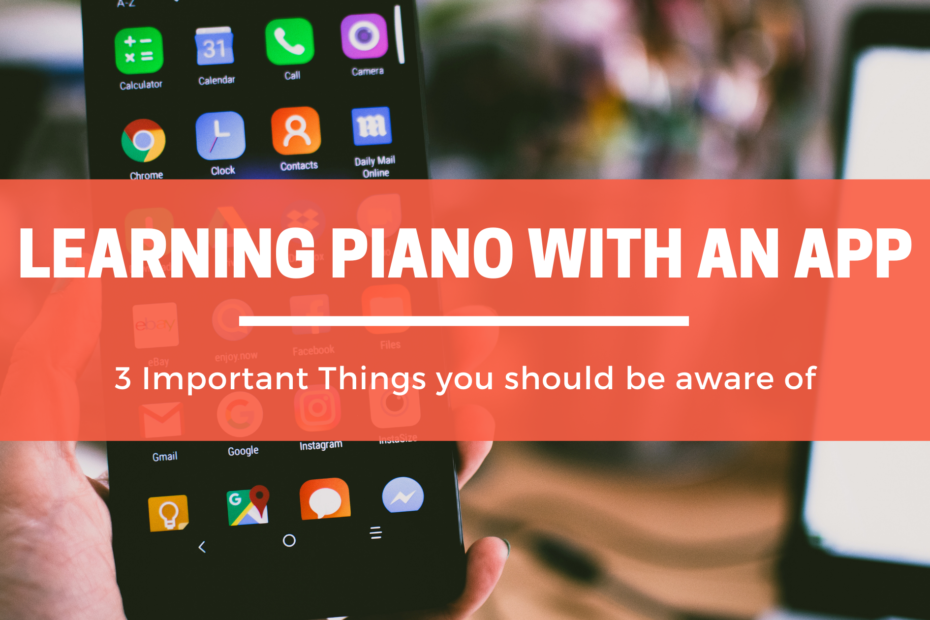If you are a complete beginner and thinking of learning piano with an app; you should be aware of a couple of things first. I have students who started playing the piano with an app who came to my classes because they reached a certain level and got stuck. There were a few issues that they had in common which are now addressed in our lessons to ensure that we correct them. There are things that are crucial when it comes to playing the piano, and some of them are not easy to fix if you get them wrong:
1.) Learning Piano Technique
A person who has only learned piano from an app usually learns pieces with a technique I call “get through it somehow“. Some students have even been complaining of pain that can develop from continuous tension in their hands. Unfortunately, I was not surprised by this after seeing them play. Their fingers and wrists were not relaxed, which resulted in very awkward hand-postures. There was no structure or consistency with their fingering which led to many problems with their playing.
The problem is that an app doesn’t check or give feedback whether or not:
- all of your fingers are relaxed on the keys
- you play the correct and consistent fingers following the flow of the melody
- your hands, arms and body posture is correct
- your wrists are too low or high and need to be more flexible
My Tip:
If you are on a tight budget; get at least a couple of lessons with a teacher who can give you a solid practise-base or take a real class from time to time to check on your actual progress. Building bad habits can cost you years to fix and can even cause you physical harm.
2.) Learning Piano Dynamics and Dynamic Changes
Since most apps do not teach you dynamic shading, regardless of the piece you play with the app, everything sounds the same. None of these students who learn with an app could play “rubato”. This means to play with expression and give a piece a unique touch of your psyche following the dynamics marks in the sheet.
While giving a lesson recently, I told one of my pupils. “Have you realised that with the piano or any musical instrument you play, you have the unique power to create and express your mood through music? You become the almighty creator.” I could see the light growing in her eyes as she understood that she has got the power to express herself without limits. This has always been one of the main benefits of playing the piano and is something that an app can never teach you.
3.) Learning Piano Phrases and Music Theory
Learning with an app often means people follow note by note without any profound understanding of the music. This lack of understanding means that the player is unable to create ‘the right mood’ reflected in the piece being played. Pieces usually fall into sections. These sections then fall into phrases which help you better understand the musical nuances of a piece and truly connect with the melodic flow. Of course, playing well-known and easy songs might not be that hard. What if you start playing some classical pieces that are more challenging? Would you be up to the task?
Another important aspect to learning piano is Music Theory; a natural part of the lesson. An app will never start a dialogue about what a composer was trying to say with the piece or why it is written in a certain tempo or key. A teacher can give you the context of the piece and advice specific to how you learn that an app will never be able to do. If you do not have a music theory background then it is much harder to understand articulation or ornamentation as you learn from sheet music.
Tip: You can check my how-to article with useful tips of practicing pieces which can help you to review your current skills when it comes to effective practicing.
What do other Piano Teachers say?
I asked my fellow teachers what they think the most important benefit of learning the piano with a teacher instead of an app. Many of them gave valuable insight which I have decided to share with you with their kind approval:

Last but not least, if you was taught by a living piano teacher as a kid, you’ll have somebody to recall with love later, though you might have hated her then.
That’s a beautiful one… ❤️